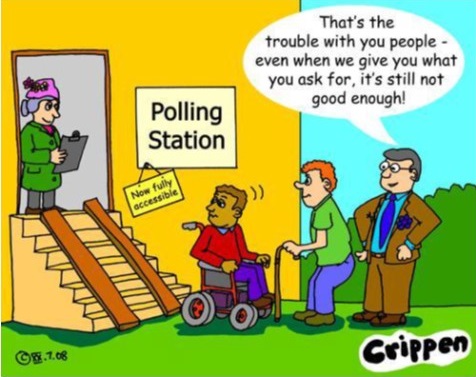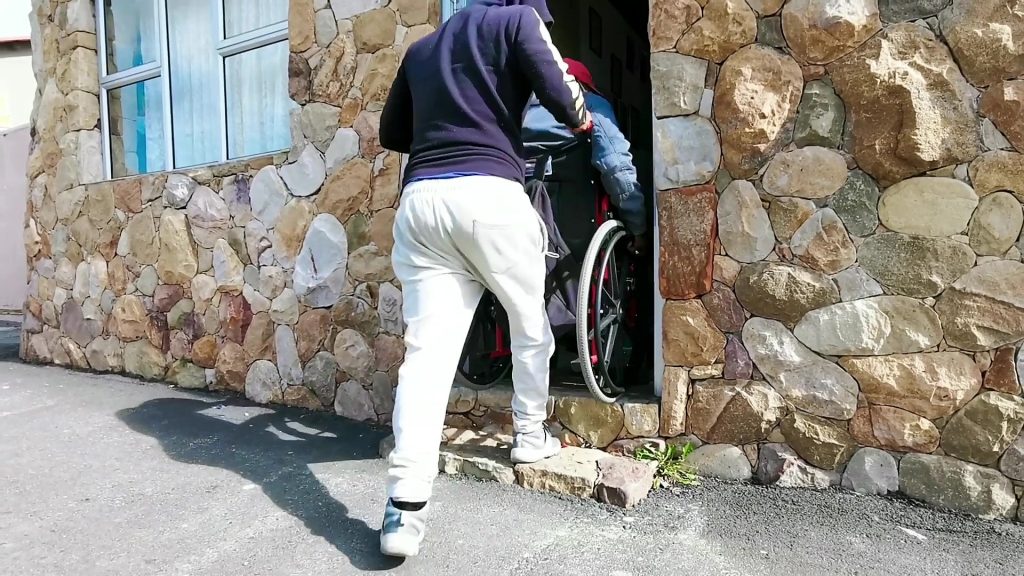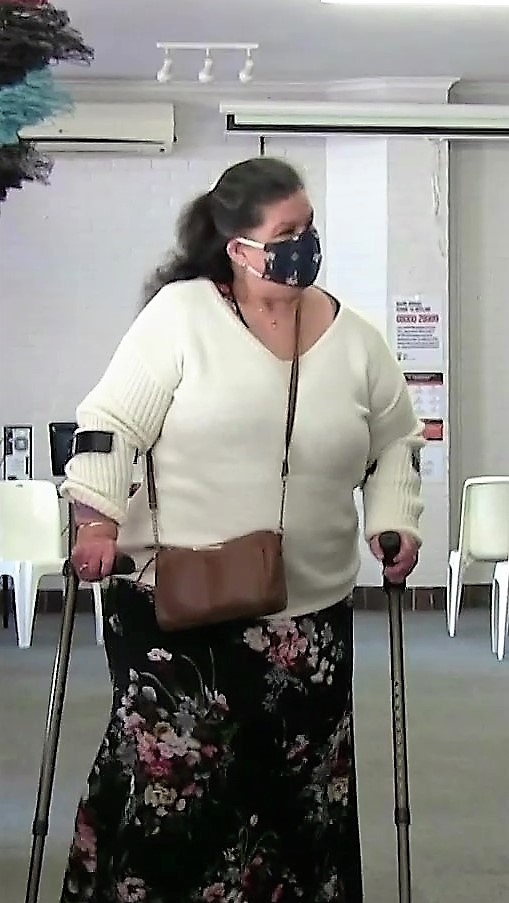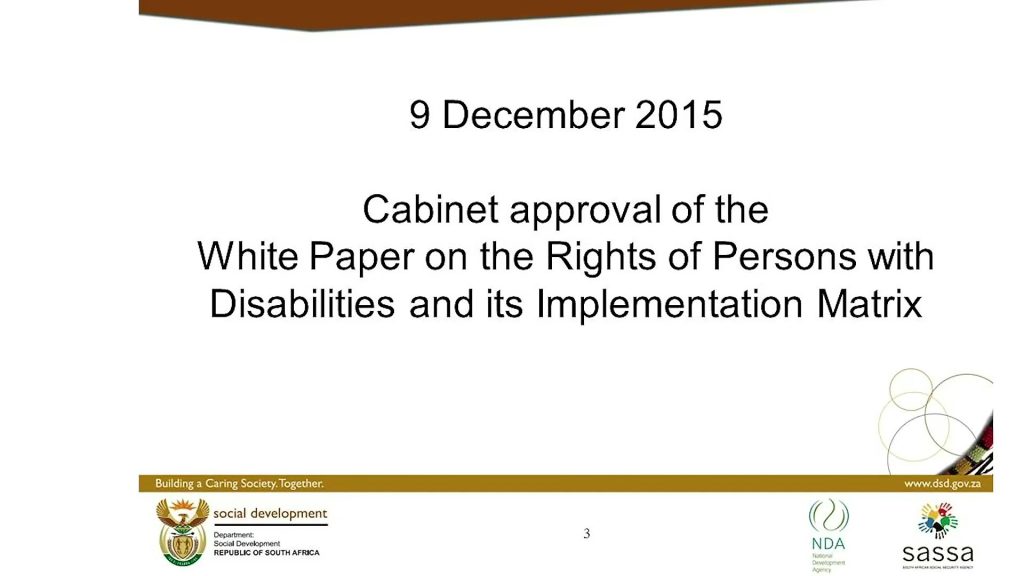#budgettips #budgetcuts #Budget2024
Our letter (or rather appeal) to Dept of Social Development
MEC Social Development.
Western Cape Government
We call on you to urgently intervene before the Western Cape Provincial Government for Social Development plunges the Province into a humanitarian crisis.
The proposed budget cuts will force many NPOs to close and the Western Cape Network on Disability will be one of them. Being in existence for the last 27 years it will be sad to see our doors closed as a result of no funding.
We have 92 members through which we serve 84,642 (indirect) beneficiaries.
Service disruption and reduction:
Services like Networking, Lobbying and Advocacy to the disability sector which we provide will be disrupted either because of reduction of services or having to cease completely. It should be noted that the Western Cape is the only Province in the country with a network of this nature, and our 27-year track record provides proof of the relevance of the organisation.
Community Wellbeing and Empowerment:
Reduction in resources negatively affects the overall well-being and empowerment of Organisations of and for people with disabilities. This includes limiting access to support, education and opportunities for networking, collaboration and support.
Isolation and Social Impact:
Closure of programs and services leads to increased isolation for beneficiaries, adversely affecting mental health, social inclusion, and overall community support. The Western Cape Network on Disability is being called on more and more by individual members of the public who are not receiving support from various Orgaisations and structures in place already and turn to the Network to bridge the gap in what they need vs what they are not getting from other sources of assistance available.
Impact on Disability Awareness and Education:
Disability awareness and education – Organisations have shown increased appreciation for the way the Network makes them aware of initiatives by other Organisations in the disability sector which will be lost should our doors close.
We have held an online meeting with our members which resulted in the Report of a Survey done after our meeting.

IMPACT REPORT
National Treasury Budget Cuts Seriously Threaten Essential Disability Services
20 February 2024
Compiled By: Western Cape Network on Disability (WCND); Western Cape Forum for Intellectual Disability; Shonaquip Social Enterprise, and 70 organisations for persons with disabilities
Background:
Significant budget cuts announced by the National Treasury during the Medium-Term Budget Policy Statement will have a devastating impact on essential services and support provided to the most vulnerable sector of our society, persons with disabilities. National Government has announced a R642.2 million cut in conditional grants provided to the Western Cape Provincial Department of Social Development (DSD). Non-profit organisations (NPOs) that provide services and support to persons with disabilities have been warned to brace for cuts to funding from Western Cape DSD, a primary funder of many organisations. This communication was received in writing on 8 December 2023, taking many organisations by surprise just as they were preparing to close for the December break.
The socio-economic and health-related challenges facing persons with disabilities in South Africa are well-documented. NPOs have traditionally filled the gaps left open by a lack of government services, providing education, skills development and vocational training, supported employment and job placement, care services and family support, rehabilitative services, and assistance to access healthcare, assistive devices, and social work support. In short, these organisations are a crucial role-player in the promotion of the human rights, dignity and wellbeing of persons with disabilities and their families. This brief report highlights the dire expected impact of the imminent budget cuts on organisations and the vulnerable communities which they serve.

Method:
A crisis meeting of organisations for persons with disabilities was held online on 8 February 2024, led by the Western Cape Network on Disability (WCND) and the Western Cape Forum for Intellectual Disability (WCFID). This meeting resulted in the setting up of a task force to address the funding threat. A survey was developed and disseminated to members of the WCND, the WCFID, and via social media. The survey was developed and data analysed by the team at Shonaquip Social Enterprise. The full results are attached to this report, while the below provides a summary of the expected impact of budget cuts on the disability sector in the Western Cape.
Results:
A total of 70 organisations responded to the survey, with 66 funded by Western Cape DSD, 1 funded by DSD National, and 3 funded by both Western Cape DSD and DSD National.
• 11 organisations (15.7%) receive up to 25% of their funding from DSD,
• 22 organisations (31.4%) receive between 26% and 50% of their funding from DSD,
• 14 organisations (20%) receive between 51% and 76% of their funding from DSD, and
• 20 organisations (28.6%) receive 76% to 100% of their funding from DSD.
• Notably, 22 organisations (31.4%) indicated that they would be likely to close if funding from DSD was withdrawn, and a total of 52.9% of respondents rated themselves above 7 on a scale of 1 to 10 regarding the likelihood that they would close their doors if funding is withdrawn.
It is crucial to note in this regard that DSD funding often supports the salaries of essential professional staff, and that funding through corporate donors often excludes salaries and operational costs. While these results show that many organisations have worked towards sustainability, this aspect of the current funding environment poses a severe challenge.
The impact of NPO closures or programme downscaling would be devastating. In their qualitative responses to the survey, organisations highlighted that the following programmes would be severely impacted: social services, educational programmes, essential care, food security programmes, support groups, agricultural projects, rehabilitative and health-related interventions, vocational training, recreational programmes, supported employment, day care services, provision of transport, and disability awareness programmes in the community.
This will have implications for the physical and psycho-social wellbeing of persons with disabilities, as a respondent stated: “Our residents will not be stimulated or rehabilitated; their physical and psycho-social wellbeing will gravely deteriorate”.

Regarding beneficiaries:
• 45 organisations serve under 250 people,
• 10 organisations serve between 251 and 500 people,
• 5 organisations serve between 501 and 750 people,
• 2 organisations serve between 751 and 1000 people, and
• 3 organisations serve between 1001 and 1500 people. This is not to mention the indirect beneficiaries such as families and caregivers.
• 40 organisations stated that they serve under 250 people indirect beneficiaries. Notably,
• 49 organisations stated that there are currently no alternative programmes available for their beneficiaries other than those funded through DSD, and 43 organisations stated that the only available referral option for their beneficiaries should their programmes close would be to government departments. This would pose a serious challenge as it is clear that government does not currently possess the specialised skills, knowledge and infrastructure to support the service, training, support and care needs of this population. 10 organisations stated that they would have no referral pathway for their beneficiaries, potentially leaving hundreds of people with disabilities and their families stranded.
Persons with disabilities are a marginalised group in society who face discrimination, social exclusion and isolation. NPOs are often a life-line for those who society continues to overlook. A respondent summed up the social impact for persons with disabilities of potential programme closures as follows: “They will go and sit at home, and this will have a huge social impact. They will become part of the unemployment statistics”. Another respondent highlighted the negative impact should their support programmes have to stop: “People who attend our support groups come because they are marginalised in society and ignored. No support groups mean even more damage to them through discrimination and not being able to process their condition”.
In addition to the threat to direct and indirect beneficiaries, budget cuts will also have a dire impact on employment in the disability service sector. NPOs employ professional staff, such as occupational therapists and social workers, and also often employ persons with disabilities, whose livelihoods will also be threatened should NPOs have to downscale or close. As one respondent stated: “No funds to pay social workers’ salaries. No social work services will be available”.
Furthermore, this current financial threat to NPOs in the disability sector comes on the back of years of financial strain caused by static or ever-decreasing budget allocations from DSD, while the population of persons who require disability-specific services has only increased. A respondent stated: “We’ve been on sustained funding since 2017, there has not been an increase at all. Workshops and up-skilling of staff is critical”. Further budget cuts will only decrease the quality and availability of services in this sector, as one respondent noted of monitoring and evaluation: “We will not be able to perform monitoring and evaluation at branches. It can lead to services that don’t comply with requested levels”.

and its Implementation Matrix signed on 9 December 2015
Conclusion:
This report provides a clear indication of the outcome of proposed budget cuts to NPOs in the disability services sector and likely to infringe on the rights of persons with disabilities and their families.
To summarise, these cuts will leave hundreds of persons with disabilities and their families stranded in terms of essential care and services. This will result in physical and psycho-social harm for persons with disabilities, increased unemployment and educational inequity for this population, as well as other risks related to food security and safety from potential violence in the family or community. These cuts will also lead to large-scale job losses among NPO staff, some of whom are themselves persons with disabilities.
Both Western Cape and National DSD must recognise that they simply cannot serve the specific needs of the population of persons with disabilities, which they have traditionally relied on the NPO sector to provide. Equally, the NPO sector cannot be expected to continue to provide high quality services in the midst of continuous financial strain and uncertainty. Ultimately, it is those who require our services the most – those who rely on free or low cost services – who will be excluded if NPOs are not sufficiently funded.